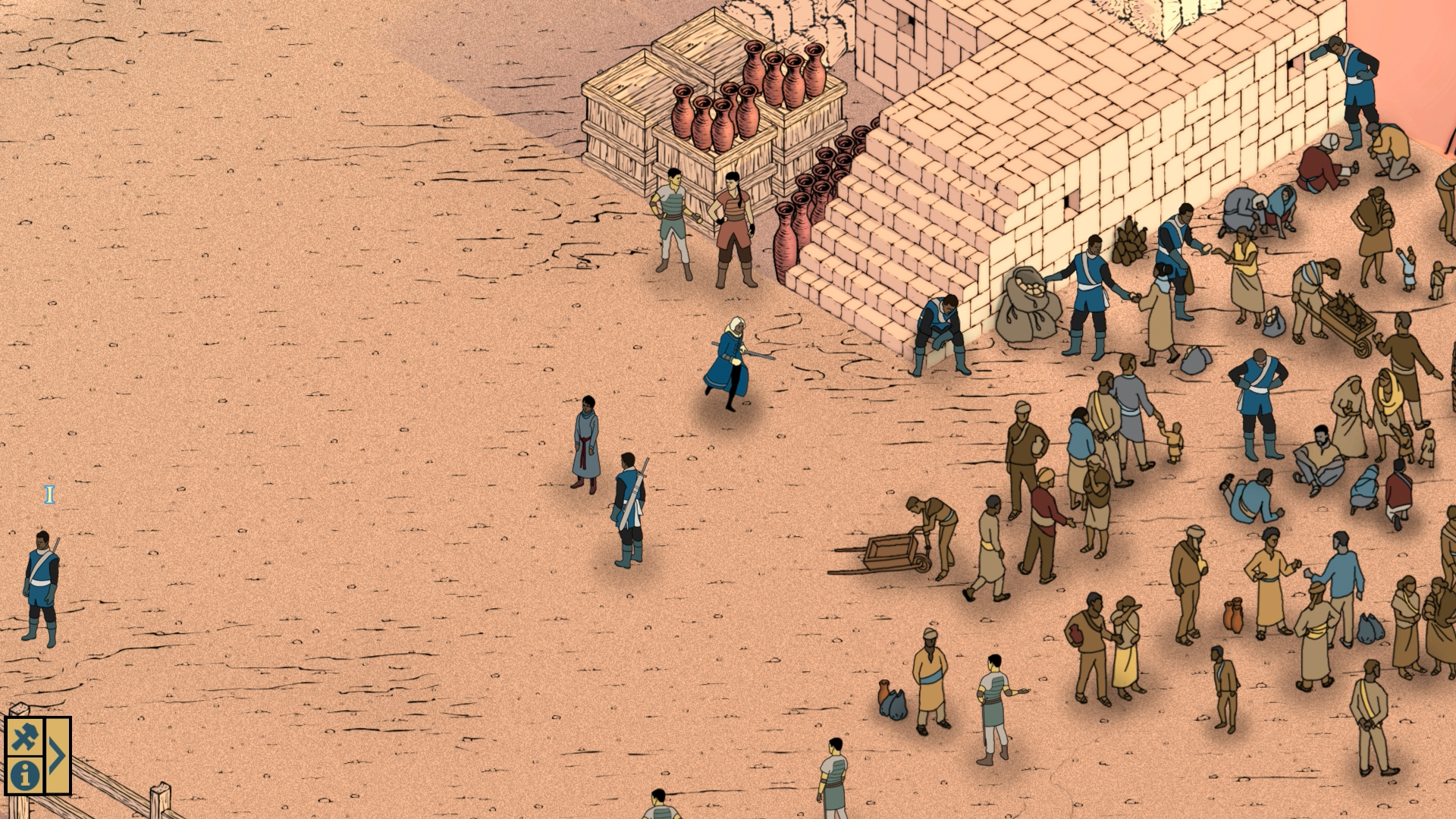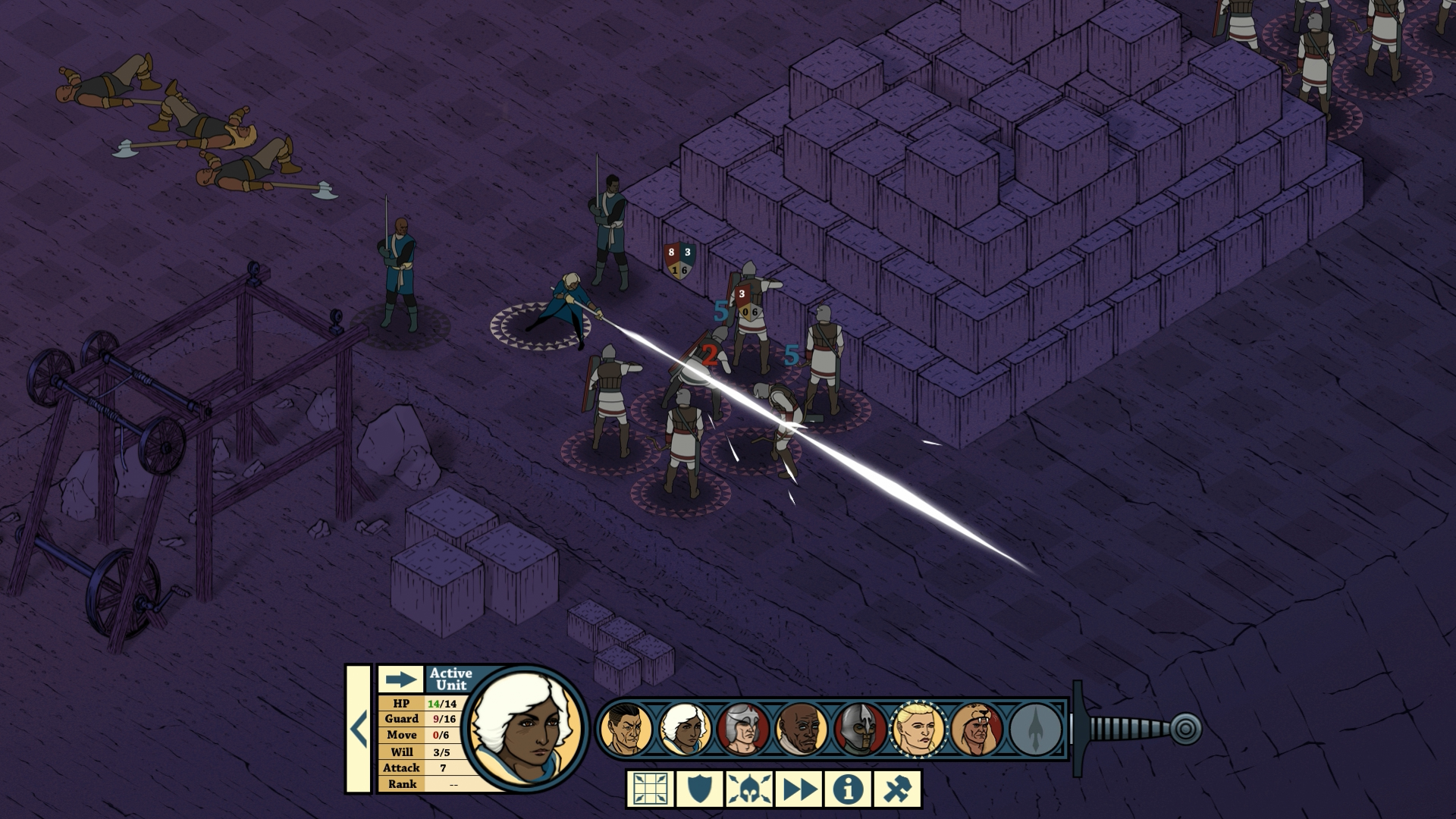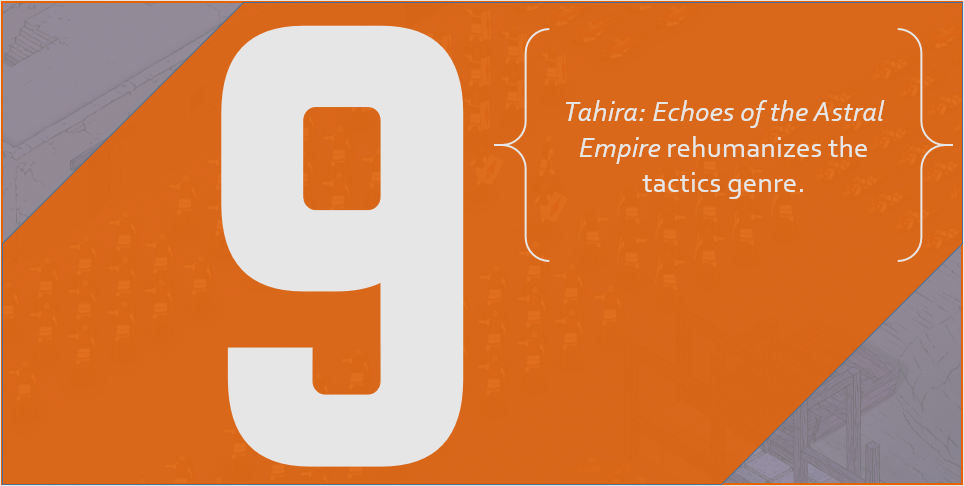Tahira: Echoes of the Astral Empire recalls history's recursive war for equality
Near the end of the 16th century, Portugal, after being contested by Britain and France for control of the current slave trade along the West African coast, turned their attention toward Luanda (capital of modern day Angola) as a new source of black bodies to enslave. After settling a fort within Luanda, the Portuguese attempted to open a dialogue with then king Ngola Mbande to negotiate peace (a rather haughty gesture given it was they who had invaded). Rather than attend these peace meetings himself, Ngola sent his sister, Nzinga, who despite going so far as to convert to Christianity and be baptized failed to appease Portugal’s increasing demands. This eventually led to Ngola committing suicide and Nzinga taking the throne herself, a turn of events that would ultimately lead to Angola’s freedom as Nzinga outright refused to surrender her people as slaves to the Portuguese. Nzinga launched a war against the Portuguese, uniting with prior rival states and allying with the Dutch for a 30-year conquest, during which she personally led troops against the Portuguese army and laid a foundation that would eventually lead Angola to independence from Portugal by 1975. She was an intense warrior and a brilliant queen, a captivating figure in history who fought tooth and nail against slavery and despite all odds prevailed. She was, to be blunt, nothing short of a badass.
Tahira does not revel in the clashing of arms but understands it to be unavoidable
///
Whalehammer Games’ Tahira: Echoes of the Astral Empire opens with its titular protagonist sitting beside a fire, talking through her frustrations and insecurities to the only one there to listen: her horse and devoted friend, Iba. As the night winds down, Tahira drifts off to sleep, only to be roughly awakened by the appearance of her father the king, communicating by way of a celestial light. Her home and kingdom, Avestan, is under siege. Moments later, Tahira witnesses her father’s death at the hand of the invading army. As princess of Avestan, she must return home. Her people need a ruler, and she’s all they have left.

What struck me first about Tahira – its beautiful rotoscope art style notwithstanding – was how bluntly it depicted the horrors of war. This is not an epic fantasy power trip, but the brutal struggle of a people driven from their home and on the verge of extinction, led by a princess still young and afraid, but forced to fight and lead or else abandon her people to certain death. But death comes regardless.
Though it shares a kinship with tactics games such as Fire Emblem and XCOM, Tahira is both more restrained and more personal than the genre is often known for. Combat is a means to a bloody end, with skill trees and advanced tactics having been omitted in favor of a stripped-down battle system that is purposefully crude. Fighters beat against each other until a body falls and one side emerges victorious to seek a new target. Tahira does not revel in the clashing of arms but understands it to be unavoidable, and this sobriety is reflected in mechanics that never afford you a sense of true power or allow you to indulge in violent upgrades.
It is a daring choice, to so boldly confront the modern player’s desire for absolute control and limitless potential, but in crafting a combat system that is deliberately underpowered and limited in scope Tahira succeeds in making its stakes matter. Each soldier lost is cause for immense distress, both due to how drastically their absence can affect a battle, but also as their death carries with it the collapse of a civilization. By journey’s end, I had become deeply invested in Tahira and her small band of companions, and their survival became not just a necessity for continued progression, but a terrifying and uncertain struggle I was only just managing to scrape through.
Tahira’s brilliance is making its world and inhabitants feel like people. People who are scared and outmatched, and who in all likelihood are all going to die in a desperate flight toward an uncertain destination. And yet, Tahira never succumbs to this unlikeliness, and instead seems to fight all the harder in spite of decreasing odds of survival. Because this is not just the struggle of a princess or even her immediate group of followers, but of an entire race.

Like Nzinga before her, Tahira is fighting for the freedom of her people from enslavement, and it is hard to miss the parallels between their dual wars against an invading empire. Tahira is not predominately about race, but neither does it dismiss the significance of Tahira and her people’s black skin, contrasted so dramatically with the pale invading force. Whether an intentional callback to Nzinga’s war with Portugal, or a more general analogy to historic and contemporary racism, Tahira doesn’t shy away from recognizing that the war it portrays is not solely fought for land. Dialogue from both sides heavily references the racist attitudes of the invading force, who, it is to be understood, intend to enslave the Tahira’s people in addition to destroying her city.
It is all too easy to employ analogies to slavery and have the end result go horribly, disgustingly awry (one need only look at Deus Ex: Mankind Divided as a recent ugly example). But with Tahira, Whalehammer Games has approached the topic of race with an immense level of care and consideration, and the result serves to elevate it from competent tactics game to something legitimately impactful. Tahira may still center on the invasion and enslavement of a black people, but it does so in a way which grants agency to its characters, allowing them to both fight for their freedom and in some small way reimagine some of the ugliest events in history. Tahira is still imperfect and limited in what it can accomplish, but it is an encouraging example of a game addressing race with the solemnity it deserves, rather than as an easy narrative trope to be overlain with the challenges of white men. Even just the fact that lead protagonist Tahira – a badass, magic wielding warrior queen – is a black woman should not be overlooked, being such a rarity not only in games but all media.
Final Word
Tahira: Echoes of the Astral Empire is neither the most expansive tactics game nor the most intrinsically satisfying. When taken in context with its thematic goals and narrative sobriety, though, Tahira easily ranks as one of the most captivating. It is a game personified not by hit points or XP bars, but by a fighting people who refuse to submit to enslavement. Tahira draws its characters as flawed and multifaceted, giving them space to laugh and cry and die as a person, not a statistic. Whalehammer Games have gone to great lengths to humanize a struggle all too similar to those found in history books and museums, and often still, on the nightly news, and in doing so created a game that is not only that much more engaging but its own small step toward some sort of progress.


